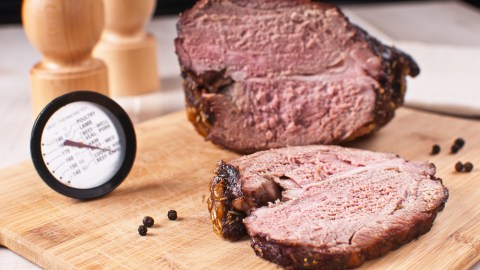Why We Love to Eat Cooked Meat Despite Vegetarian Alternatives

What’s the Latest Development?
A team of Dutch scientists recently presented the world’s first lab-growth beef patties as a potential alternative to animal protein, recognizing the dominance of cooked meat over alternatives like beans, nuts, quinoa, and tofu. Despite its inefficient use of cropland and greenhouse gas production, why do humans crave cooked meat? “As much as 95 percent of what we think of as meat’s taste is actually its aroma… And the lack of strong scents is one reason why raw meat is not very appealing.” In experiments, chimps, gorillas and orangutans have been clear about their preferences: Roasting, grilling, and stewing meat adds to its appeal.
What’s the Big Idea?
Vegetarians and nutritionists alike tell us that meat consumption is unnecessary for a healthy diet. Too much red meat even increases the risks of contracting heart disease. It seems the smell of cooked meat overpowers our health concerns due to a chemical reaction that occurs when foods containing carbohydrates and amino acids are cooked at high temperatures. Called the Maillard reaction, this rich combination of cooked sugar and fats is responsible for the intoxicating smell of baked breads and cookies, roasted vegetables, and brewing coffee. Because the recently lab-grown beef was all protein and no fat, the Maillard reaction also explains why it didn’t taste very good.
Photo credit: Shutterstock.com
Read it at the Washington Post





